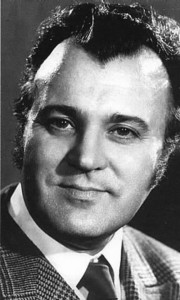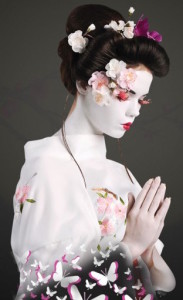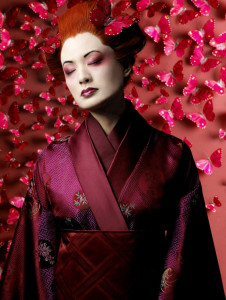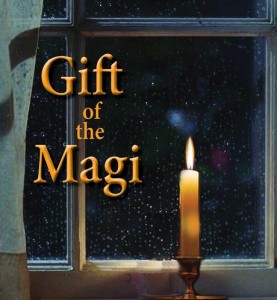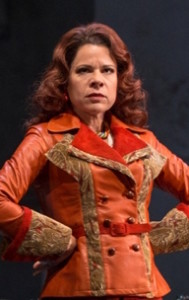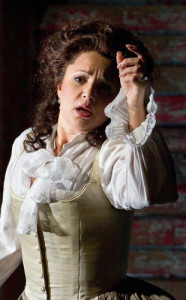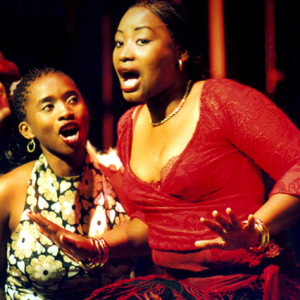I don’t remember the first time I heard Nicolai Gedda’s voice. Unlike with so many other singers, no specific recording stands out as my introduction to his work. I almost feel as if I’ve always known him. His golden silk tone and his impeccable elegance have been familiar and reliable for as long as I remember. Read the rest of this entry »
-
 0 Bravos & Boos (Comments)
0 Bravos & Boos (Comments) -
I can’t believe it… my first opera blog post in a year, now that I’m finally free from the demands of grad school. It’s nothing much, but at least it’s a new start.
*Don José doesn’t sacrifice everything for Carmen. He loses everything because of his love for Carmen, but not willingly. He’s neither the selfless romantic figure nor the spineless doormat that popular imagination paints him as.
*La Bohéme is good, but not “the perfect opera,” nor is it the greatest introduction to the genre. I’d just as soon, if not sooner recommend La Traviata, Carmen, or, particularly for the younger set, Hänsel & Gretel or Die Zauberflöte.
*Susanna isn’t the single smartest character in Le Nozze di Figaro. She, Figaro and the Countess are all three smart in different ways and rely on each other. Read the rest of this entry »
-
What to do about the problem of Madama Butterfly?
It was one of the first operas I ever experienced. When I was newly obsessed with the genre at age fourteen, it was an uncontested favorite. Day after day I listened to the classic recordings (first Serafin, then Sinopoli, then Leinsdorf, then Karajan…) and watched every filmed version available, luxuriating in Puccini’s glorious music, in the beauty of the exotic, blossom-infused setting and in the deliciously heartrending romantic tragedy. Even though I knew Pinkerton was a cad, I projected all my teenage fantasies of romance onto the Act I love duet. This opera was essentially my Twilight. Read the rest of this entry »
-
Cast
Della: Sara Duchovnay
Jim: Ryan Bradford
Maggie: Nora Graham-Smith
Henry: Anders Froelich Read the rest of this entry »
-
The female characters and gender issues in the Mozart/Da Ponte operas deserve to be explored from every angle. It can be debated for eternity whether Cosí Fan Tutte is really as misogynistic as it pretends to be, whether or not the proto-feminism of Figaro is undermined by the Countess’s forgiving her unworthy husband, whether or not the three women of Don Giovanni exist to earn sympathy or to be mocked, whether Mozart’s music gives the female characters more depth and intelligence than the males or stereotypes and “others” them, and, if the former is true, whether his music transcends Da Ponte’s misogyny or whether Da Ponte likewise sides with the ladies. This doesn’t even apply to the Da Ponte operas alone – discussing The Magic Flute‘s gender issues opens a massive can of worms! Just to scratch the surface of an incredibly rich topic, I’d like to discuss one of Don Giovanni‘s women: Donna Elvira. Read the rest of this entry »
-
Cast
Noluthando Boquana, Mandisi Dyantyis, Thobile Dyasi, Ayanda Eleki, Zamile Gantana, Nontsusa Louw, Sifiso Lupuzi, Pauline Malefane, Bongiwe Mapassa, Zanele Mbatha, Siyasanga Mbuyazwe, Sinethemba Mdena, Valencia Mgugunyeka, Sandile Mgugunyeka, Katlego Mmusi, Mhlekazi (WhaWha) Mosiea, Zoleka Mpotsha, Siyanda Ncobo, Cikizwa Ndamase, Busisiwe Ngejane, Zolina Ngejane, Sonwabo Ntshata, John Page, Tukela Pepeteka, Luvo Rasemeni, Maris Sharp, Masakane Sotayisi, Ayanda Tikolo
Conductor: Mandisi Dyantyis Read the rest of this entry »
-
I wrote this literary criticism for LIBR 265, San José State University. It earned 10/10 points. Read the rest of this entry »




